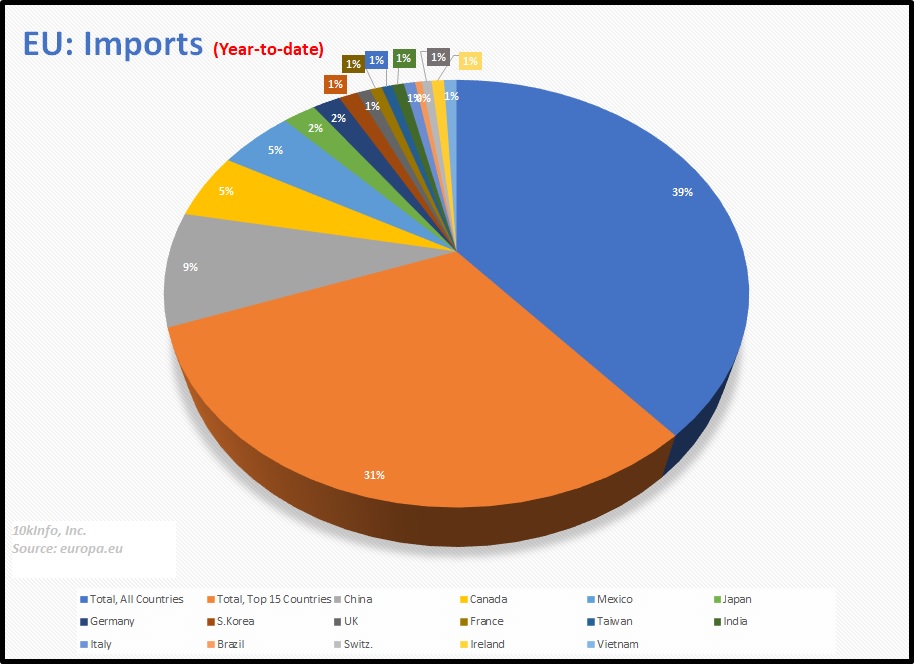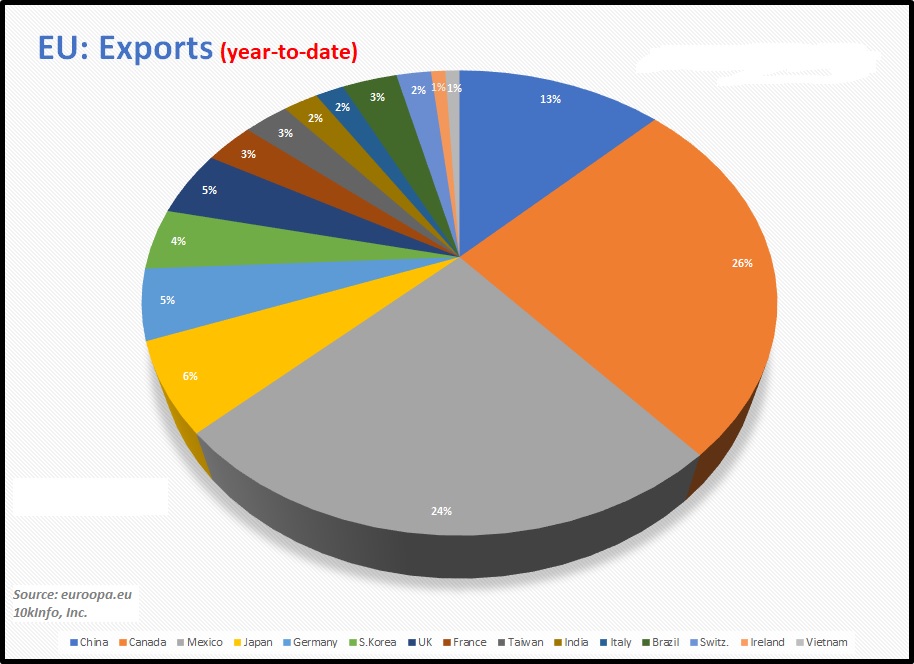Post-Cold War gains from giving priority to economics could be reversed if the trend continues, studies suggest
A world order established in the post-Cold War era with a focus on the economy is slowly yielding to new priorities of security and climate change, an article in The Economist says.
The order that America and Europe established following the fall of the Soviet Union was an economic order “based upon open markets, global trade and limited state meddling in the economy,” writes the premier British weekly newspaper.
The policies of that era were forged when climate change was a distant threat. “Allowing countries like China or Russia into the global economy was widely seen to be beneficial for both them and their Western trading partners.” As the two economies grew by adopting market economics, the belief was they would eventually turn democratic.
In the changing scenario, policymakers on both sides of the Atlantic have shuffled the priorities further, in favor of national security and climate change. The talk in Brussels now is of “economic security” and “strategic autonomy,” the article says.
Ursula von der Leyen, president of the European Commission, recently said that she wants to “de-risk” relations with China. She is in concurrence with the officials in Washington. “They believe that the old, world order allowed America’s industrial base to wither, created economic dependencies that could be exploited for geopolitical gain, left the climate crisis unaddressed and increased inequality in a manner that undermined democracy. Yet pursuing greater security, tackling climate change and seeking to counter the threat of China involves all manner of trade-offs. Even if economic considerations are no longer dominant, the discipline of economics still has much to offer.”
Weaponizing economics
For economic weapons such as sanctions to work, gauging their costs is imperative. Russia’s invasion of Ukraine in February 2022 was a test case. Then debates raged in the EU on whether to ban Russian gas imports – a double-edged economic weapon. “The fear—forcefully voiced by businesses and industrial unions—was that an embargo would be a brutal economic hit not to Russia, but to Europe instead.” A group of economists, including Ben Moll at the London School of Economics and Moritz Schularick at the University of Bonn, who analyzed the likely impact of such measures, forecast a hard hit, although they expected the economy to quickly adjust to the shock. To its credit, the EU did avoid a recession, maybe with gas consumption in the 12 months to February dropping 15% lower than a year earlier.
In a new paper, the three economists from the group that made the initial forecasts claim that Europe could have withstood an immediate gas embargo in April 2022, instead of the cut-off later in summer. Another forthcoming paper by Lionel Fontagne of the Paris School of Economics and others, which studies energy-price shocks in France over a couple of decades, has a similar drift saying firms adapt quickly, and only in part by cutting employment and production.
That led to the logical question of what would be the outcome of an economic clash between the West and an economically more powerful rival, such as China. The group studied the model looking at intermediate inputs such as semiconductors or engine parts, rather than finished products. Based on the European Central Bank’s division of the world into “East” and “West” blocs, the study looked at an international trade model of limited trade of the mid-1990s. The analysis finds that the short-term hit, before the world economy has adjusted, would be large, at about 5% of global GDP. But, over time, the loss would fall to about 1%. The hit to America and China would be relatively small, compared with more globally integrated economies like the euro zone. Small open economies, like South Korea, would bear the brunt.
Intriguing aspect
An intriguing aspect of an East-West clash is technological diffusion, a crucial ingredient in the current economic growth, the article says. “Less trade means fewer learning opportunities, especially for poorer countries.” Carlos Goes of the University of California, San Diego, and Eddy Bekkers of the WTO simulates the impact a breakdown in relations could have on such diffusion. They find that the consequences for the American economy, as the technological leader, would again be manageable. The impact on China or India will be considerable, since both countries would miss out on opportunities to advance.

On the issue of climate change, trade-offs may be even more painful, according to the article. Although President Joe Biden has set aside more than $1trillion over the next decade for green stimulus and manufacturing, there is uncertainty of how the situation could emerge. Meanwhile, the outcome of an intervention to boost industrial employment could be mixed. Chiara Criscuolo of the OECD and others, who analyzed the EU’s previous efforts, find that the bloc’s schemes support employment only at small firms. Large firms, they note, tend to take the payment without significant addition of jobs.
The response of other countries of adding more green subsidies has been termed “unwise” and could cost the economic efficiency needed to maintain a stable climate amid limited resources and strained government budgets. The article cites a new working paper by Katheline Schubert of the Paris School of Economics and others that look at different combinations of carbon taxes and green subsidies. They confirm earlier research findings that “relying on subsidies to green an economy entails large costs compared with a carbon price.”
Dani Rodrik of Harvard University, a critic of the old “Washington” consensus, describes in a recent essay on industrial policy how difficult such intervention would be to get right results. He warns that trying to achieve multiple goals (say, to tackle climate change, boost industry and enhance security) with a single lever raises the chance of failure. What’s more, any paradigm that becomes conventional wisdom is in danger of promoting one-size-fits-all solutions, writes Rodrik. To its critics, the old Washington consensus failed on fairness and growth. “Now it is easy for economists of all stripes to see the dangers of the new consensus. Policymakers would be wise to listen,” the article concludes.
Read more:



